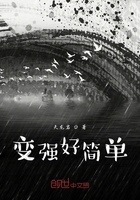IN THE NOVEMBER of 1805 Prince Vassily was obliged to go on a tour of inspection through four provinces. He had secured this appointment for himself, in order to be able at the same time to visit his estates, which were in a neglected state. He intended to pick up his son, Anatole, on the way (where his regiment was stationed), and to pay a visit to Prince Nikolay Andreivitch Bolkonsky, with a view to marrying his son to the rich old man’s daughter. But before going away and entering on these new affairs, Prince Vassily wanted to settle matters with Pierre, who had, it was true, of late spent whole days at home, that is, at Prince Vassily’s, where he was staying, and was as absurd, as agitated, and as stupid in Ellen’s presence, as a young man in love should be, but still made no offer.
“This is all very fine, but the thing must come to a conclusion,” Prince Vassily said to himself one morning, with a melancholy sigh, recognising that Pierre, who was so greatly indebted to him (But there! God bless the fellow!), was not behaving quite nicely to him in the matter. “Youth…frivolity…well, God be with him,” thought Prince Vassily, enjoying the sense of his own goodness of heart, “but the thing must come to a conclusion. The day after to-morrow is Ellen’s nameday, I’ll invite some people, and if he doesn’t understand what he’s to do, then it will be my affair to see to it. Yes, my affair. I’m her father.”
Six weeks after Anna Pavlovna’s party, and the sleepless and agitated night after it, in which Pierre had made up his mind that a marriage with Ellen would be a calamity, and that he must avoid her and go away; six weeks after that decision Pierre had still not left Prince Vassily’s, and felt with horror that every day he was more and more connected with her in people’s minds, that he could not go back to his former view of her, that he could not tear himself away from her even, that it would be an awful thing, but that he would have to unite his life to hers. Perhaps he might have mastered himself, but not a day passed without a party at Prince Vassily’s (where receptions had not been frequent), and Pierre was bound to be present if he did not want to disturb the general satisfaction and disappoint every one. At the rare moments when Prince Vassily was at home, he took Pierre’s hand if he passed him, carelessly offered him his shaven, wrinkled cheek for a kiss, and said, “till to-morrow,” or “be in to dinner, or I shan’t see you,” or “I shall stay at home on your account,” or some such remark. But although, when Prince Vassily did stay at home for Pierre (as he said), he never spoke two words to him, Pierre did not feel equal to disappointing him. Every day he said the same thing over and over to himself. “I must really understand her and make up my mind, what she is. Was I mistaken before, or am I mistaken now? No, she’s not stupid; no, she’s a good girl,” he said to himself sometimes. “She never makes a mistake, nor has said anything stupid. She says very little, but what she does say is always ****** and clear. So she’s not stupid. She has never been abashed, and she is not abashed now. So she isn’t a bad woman.” It often happened that he began to make reflections, to think aloud in her company, and every time she had replied either by a brief, but appropriate remark, that showed she was not interested in the matter, or by a mute smile and glance, which more palpably than anything proved to Pierre her superiority. She was right in regarding all reflections as nonsense in comparison with that smile.
She always addressed him now with a glad, confiding smile—a smile having reference to him alone, and full of something more significant than the society smile that always adorned her face. Pierre knew that every one was only waiting for him to say one word, to cross a certain line, and he knew that sooner or later he would cross it. But a kind of uncomprehended horror seized upon him at the mere thought of this fearful step. A thousand times in the course of those six weeks, during which he felt himself being drawn on further and further toward the abyss that horrified him, Pierre had said to himself: “But what does it mean? I must act with decision! Can it be that I haven’t any?” He tried to come to a decision, but felt with dismay that he had not in this case the strength of will which he had known in himself and really did possess. Pierre belonged to that class of persons who are only strong when they feel themselves perfectly pure. And ever since the day when he had been overcome by the sensation of desire, that he had felt stooping over the snuff-box at Anna Pavlovna’s, an unconscious sense of the sinfulness of that impulse paralysed his will.















